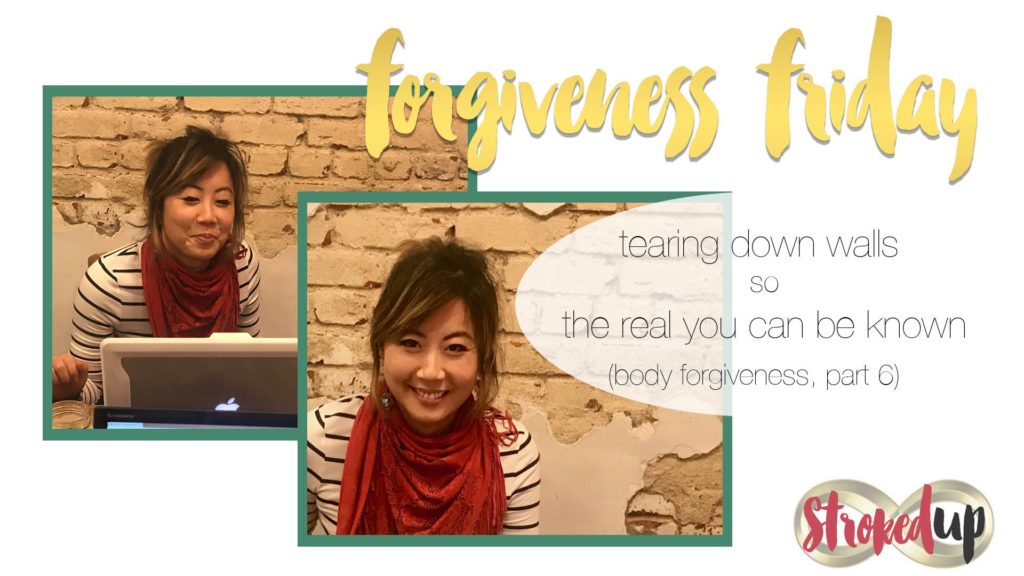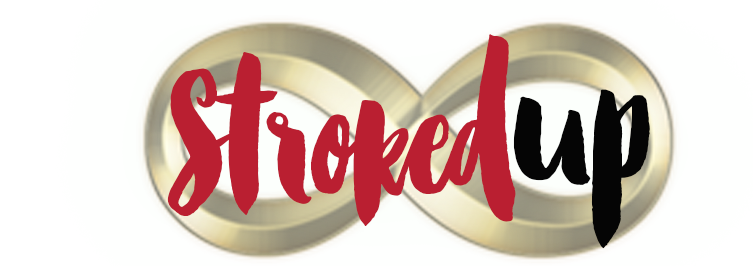[forgiveness friday] boundaries are not barriers

Let’s talk about the walls we build to protect ourselves.I’ve been extraverted all my life — yet, I have a highly developed introversion to me too that’s confused a lot of people (particularly me). I’m highly sensitive to people’s energies, especially their anxiety.
During the course of my recent travels, I only just found out that the “highly sensitive extravert” is a thing, and not only did I find relief from that validation, but I also was able to resolve an unsettled, unanswered question on my heart for a long time.
If you live in the US, we live in a society where extraversion and being very outwardly expressive and around people all the time is celebrated and expected.
That’s all well and good until you feel like you’ve got something to hide, whether that’s inside of you or something to hide from. (For me, it was the internal impact of the disability.)
The thing about most extraverts (me included until maybe four years ago) is we don’t hold much back. We can come on really strong and we tend to dominate conversations.
Which is also all well and good until boundaries start to get crossed — which they inevitably will if you’re used to exerting your own will out into the world and never getting any pushback. And especially if historically you’ve had a lot of your own boundaries get crossed in your home life. Nobody is exempt, because as humans, each of our personal preferences vary.
I’m talking about a responsible use of our power as opposed to forcing ourselves onto others, which is not power, but an abuse of it.
I bring this up because also historically? Family members — whether extraverted or not — tend to exert their will onto one another. At the end of the day, human beings are a social animal, and animals, as much as we may love ’em, just do what they do until they are trained to otherwise.
I had to develop a strength in myself to hold true to my own needs with respect to my family. When I fall back into old patterns, then I practice loving them from an appropriate distance.
Right after my stroke, my family was great. They amazed me, in fact. Everything was about making my life easier — about supporting me so I could learn how to function again. They had me take the semester off of school. They were really patient with me, helped me walk up and down the stairs, gave me plenty of space to be.
That worked for a while, even until after I moved back from undergrad several years later and asked for a year to focus on my rehab before I’d enter the workforce.
After that year, though, I still wasn’t ready to enter the world again as a functioning adult. I didn’t have the awareness to vocalize my needs at the time, but what I needed was some space from the hovering voices of my parents trying to hurry me along and get me moving on with my life already. Unknowingly, I still needed to heal a lot of the trauma from the emotional impact of the stroke before I would actually be willing to “get on with life.”
Also, it needs to be said that while my family members unequivocally love me, and fiercely so, they also did not have the emotional capacity to understand my need for space for that processing.
Not only would I need to grieve my losses (with plenty of room for all emotions, btw) and give up the burden of hating my body for what I felt was a huge betrayal, I’d also need to grieve how I once showed up in the world so that I could create a new way of being.
But this was not the way my family operated, or anyone I knew at the time, for that matter. Instead, I tried the old way of just pushing through, believing there was something fundamentally wrong with me. Like, why couldn’t I just check my ego and get a job? Why couldn’t I spend hours and hours and hours every day at the gym concentrating on my rehab?
So it took me years and years of fighting with my family’s (and my own) expectations of me, of wasted energy, money, and perceived failure as I slowly, slowly uncovered the layers of my emotional wounding.
Much later on, through my mentor Kristin, I found a community, a sisterhood, of women whose foundational agreements lay in 100% personal responsibility, which made honest relating and emotional intimacy possible. Personal responsibility is the practice of actively living from the fact that we all have a hand in co-creating any experience, especially our interactions. It includes conscious relating at its best, while also leaving room for imperfection and mistakes. It’s a no-blame zone. When we make mistakes, we behave with accountability and clean them up.
Through the sustained practice of this intimate communication of my internal truths, I was able start to cracking open to who I was deep down. I started to develop accurate language and really valuable tools for relating to others vulnerably — and not in a manipulative way.
I began to embody and truly understand for the first time that not only was it okay to tell people what my boundaries (my needs and preferences) were, but that once I was clear in my no, could I be clear in my yes. And if I wasn’t clear about these things and the interactions between me and others became muddy, it was because there were some obvious leaks in the container that was allowing a lot of unintentional harm to happen.
So like, when people first start learning about boundaries often it becomes all about them and what they will or will not tolerate. Which is fine — but can quickly turn into a black-and-white testing facility that shuts most people out. Boundaries of that nature become a prison of your own making, rather than a two-way, mutually beneficial energy exchange.
When I was in that stage, it used to look like, “I won’t be friends with people who disagree with me.” And since I often unintentionally polarized the outside world, that qualifier ended up being a lot of people.
I was so afraid of being hurt or emotionally triggered that I would just energetically shut out anyone I held a grudge against — which did not leave me with many warm bodies to spend time with, to hug, to be in life with. If that person was someone I “had to” be around (such as a family member or a coworker) I would let those grudges and triggers build up, build up, build up until our relationships became very uncomfortable to all involved.
Let’s go back to my extraversion. The truth I denied for forever was, I love being around people. They energize me and they make my life infinitely more enjoyable. Nowadays, when I’m overwhelmed, all it takes for me to recharge is to close my eyes for a moment and reconnect with my body. Then I’m back and ready to play!
I’ve noticed this is severely different from the people I’m close with who are at their core introverted. They need to actually physically remove themselves from overstimulating environments in order to recharge, and even when they’re well versed in socializing (and even expressing in a very extraverted way for long stretches of time), they need their downtime like I need my food. (If we’ve ever eaten a meal together you’d know I eat the lion’s share at every chance I get.)
When it comes down to it, we all have a mixture of intro- and extraversion. We all have our own needs for closeness and for space. It’s normal and doesn’t need justifying. We all must find out what those needs are and also be open to the possibility of those needs to evolve over time.
As I cultivated more and more space to practice voicing my own needs and preferences within my sisterhood, I began to understand more deeply how I did not need to shut people out anymore for not being how I wanted them to be.
And eventually, once I began to truly and consciously integrate a deeper spirituality and love for myself, my internal landscape became more spacious, too. I made a home and a partner out of my relationship with my body through a combination of healing, intimate connection, space, and divinity.
By this, I mean if you’re like me and can hold grudges easily, you must make a regular practice of forgiving yourself and others — and if you’re just starting out, make a practice of revealing your truth, not to manipulate but simply to better be known — surrendering that up to something greater than you, and knowing that that resides in your heart. As long as your heart beats, you live, and as long as that is true, you can connect to it. Because that’s who you actually are.
I include this piece in the “body forgiveness” series because true forgiveness transforms the entire body, not just the brain. It’s no longer some lofty idea (“wouldn’t it be nice?”) but is true to your actual experience of life.
That’s why now, all I need is a moment to close my eyes and breathe before I can be out in the world.
Since this started, I’ve noticed myself feeling more and more safe to show the world who I really am and safe to trust the people I meet. It’s a deepened sense of self-trust, which (for those of us who lost that a long time ago) is only the result of self-care and practice.
In fact, right before I sat down at this coffee shop here in Venice, CA, I randomly had a really deep, 40-minute conversation with the woman sitting near me. We were like souls, and we were only able to find each other because we were willing to move through the world with open hearts and strong cores.
A strong core means that no matter what, you know you’ve got yourself. There’s absolutely nothing to hide, to hide from, nothing to defend, and nothing to fear.
Since a lot of this can’t be understood mentally (it is embodied), I’d love to hear what comes up for you. I’m here to answer your questions or hold space for your experience, so please contribute your comments below and share this with someone who could benefit.
Much love,
Pamela
